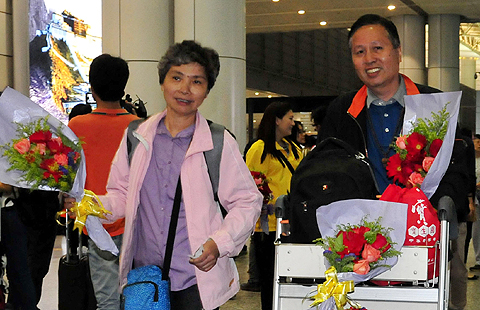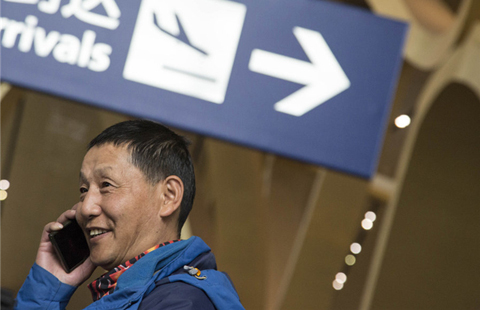Leading the field on faith
Updated: 2015-04-24 16:22
By Luo Weiteng(China Daily USA)
|
||||||||
Educated choices
The move to enter a market - no matter whether it is Charles Schwab stepping into Hong Kong in 1997 or a sophisticated investor getting into a field, an industry or even a nation's economy amid signs of volatility - should be interpreted as an act of optimism, said Sun.
With high hopes that tomorrow will be better and with their bets riding on the future, investors troop in, hoping to join in the development story here in the long run.
"Investment should be a long-term commitment rather than a quick in-and-out," said Sun. "It is not about buying particular stocks at a particular time and picking the right stocks."
"Rather, it is about participating with optimism, with long-term perspective and a diversified portfolio."
In that sense, investor education, still at its nascent stage on the mainland, is how Charles Schwab makes its strong presence felt in the region.
"Because people don't know what they don't know," said Sun.
"They need to have someone around to teach them how to invest in a more responsible way instead of being a short-term trader."
"That is the kind of role that Charles Schwab could expect to play."
According to a Study of Emerging Affluent Investors in Urban China released by Charles Schwab and Tsinghua University's School of Economics and Management in January, as a nation of savers, 89 percent of mainland investors surveyed had parked their savings in cash or cash-like products, while three-quarters owned some stocks or bonds.
"What was surprising is that many investors' attitudes are not aligned with their behavior," said Lisa Hunt, executive vice-president for international services and special business development at Charles Schwab's Washington offices.
She pointed out that 41 percent of investors surveyed traded in stocks, especially Hong Kong and mainland-listed ones, at least 36 times a year - yet a significant portion see themselves as risk-averse.
The lack of a middle ground between frequent speculative trading in stocks and a cash-heavy portfolio is a market gap Charles Schwab could spare no effort to fill in, observed Sun.
What emerging affluent mainland investors need is a long-term investment plan with a globally diversified portfolio, in tune with their risk tolerance and investment objectives.
But what matters more is whether such HNWIs realize that they need to invest more responsibly rather than be bent on making a fortune overnight or simply burying all their money in cash or banking accounts, added Sun.
Sun feels it is the responsibility of market leaders in the region to encourage investors to commit and take ownership of their financial future by embracing healthy and professional investment practices. The need for greater investor education and a higher level of financial literacy in the region is also seen to translate into good opportunities for Charles Schwab and the industry as a whole.
"Nurturing investor education, which remains at a germinal stage on the mainland, is what we desperately want to do on the mainland, what we are doing in the region and what we have been doing in Hong Kong for many years," Sun pointed out.
Contact the writer at sophia@chinadailyhk.com

 International rescue teams head to quake-hit Nepal
International rescue teams head to quake-hit Nepal
 World's deadliest earthquakes since 1900s
World's deadliest earthquakes since 1900s
 Rescuers deliver relief supplies on foot
Rescuers deliver relief supplies on foot
 China brings trapped nationals home from quake-hit Nepal
China brings trapped nationals home from quake-hit Nepal
 Severe drought hits Southwest China
Severe drought hits Southwest China
 History razed in Nepal earthquake
History razed in Nepal earthquake
 'Chi-pao teachers' found in Guangdong
'Chi-pao teachers' found in Guangdong
 Tourists evacuated from Nepal quake area arrive in Kunming
Tourists evacuated from Nepal quake area arrive in Kunming
Most Viewed
Editor's Picks

|

|

|

|

|

|
Today's Top News
China rescue team starts work
Three US citizens among dead in avalanche after Nepal quake
Abe's US trip: sense or sensibility?
China to overtake US in mobile gaming market
Nearly 2,500 confirmed dead in Nepal quake
US sending disaster response team, $1 million aid to Nepal
All-clear sounded at Statue of Liberty after bomb scare
Devastating Nepal quake kills 1,457
US Weekly

|

|







